September Rate Cut: Good News for Homebuyers and Debt Holders
“The time has come for policy to adjust.”
Federal Reserve Chair Jerome Powell indicated that the central bank intends to cut interest rates in September. Powell noted that while inflation is easing, the job market is showing signs of weakening. This has led the Fed to consider lowering interest rates. Experts expect a quarter-point reduction.
With rate cuts on the horizon, now is the time to think about how these changes could help the housing market and your financial situation.
What Does This Mean for Homebuyers?
For prospective homebuyers, a rate cut could make a very big difference. Lower interest rates mean lower monthly mortgage payments, which could help more people afford a new home. If you’ve been considering entering the housing market (or waiting patiently for a rate cut) September may be the perfect time to lock in a more affordable mortgage.
Refinancing Your Mortgage
If you’re already a homeowner and you bought high, this potential rate cut is your chance to refinance your mortgage at a lower rate. Receive substantial savings over the life of your loan by lowering your monthly payments or shortening your loan’s term.
Consolidating Credit Card Debt
Many consumers have accumulated significant credit card debt over the past year or more. A rate cut could benefit those looking to consolidate their debts. By consolidating credit card balances into a single, lower-interest loan, you can reduce the amount of interest paid and streamline your finances, making it easier to manage and pay off your debt more quickly.
With a rate cut on the horizon, now is the time to consider how these changes could positively impact your financial situation and readiness to purchase a new home. A decision on the cut could come as soon as September 18.
* * * * *
Ready to buy a new home or refinance the one you own? Please get in touch and I’ll be happy to answer your questions and help guide you through the process. I look forward to speaking with you.
Happy Labor Day
Here are five activities to make the most of your weekend.
1. Spend a Day at the North Shore Beaches
Kick off your Labor Day with a relaxing day at the beaches on the North Shore. Plum Island, Crane Beach, Wingaersheek Beach and Good Harbor Beach are perfect spots to soak up the last rays of summer sun.
2. Enjoy Boston Harbor Fireworks
As the day winds down, head to the Boston Harbor to catch the annual Labor Day Fireworks. This dazzling display lights up the sky and is best viewed from the waterfront or one of the nearby parks.
3. Visit the Institute of Contemporary Art (ICA)
Take advantage of free admission to the Institute of Contemporary Art in Boston on Labor Day. Explore cutting-edge art exhibits in a stunning waterfront location.
4. Step Into History with a Visit to Salem Historic
Salem, MA is renowned for its rich past and infamous witch trials. Wander through the streets and visit historic sites like the Salem Witch Museum, the House of the Seven Gables, and the Salem Maritime National Historic Site.
5. Attend the Marlborough Labor Day Parade
Wrap up your holiday weekend by attending the Marlborough Labor Day Parade. The parade features a lively mix of floats, marching bands, and local groups, creating a festive atmosphere that’s perfect for families.
Home Improver: Ditch Your Chemical Air Fresheners: 5 Natural Ways to Freshen Your Home
In keeping with our recent theme of removing harmful chemicals from your home, this month we’re looking at alternatives to air fresheners.
5 Natural Alternatives to Freshen Your Home
Essential Oil Diffusers: Essential oils are a great alternative to chemical air fresheners. Diffusers disperse the oils into the air, filling your home with pleasant, natural fragrances. Popular choices include lavender for relaxation, eucalyptus for a fresh, clean scent, and citrus oils for an energizing atmosphere.
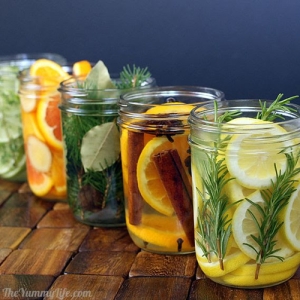 Beeswax Candles: Unlike traditional paraffin candles, which can release toxins when burned, beeswax candles are a natural and eco-friendly alternative. They emit a warm, honey-like scent and can even help purify the air by releasing negative ions that bind to and remove toxins.
Beeswax Candles: Unlike traditional paraffin candles, which can release toxins when burned, beeswax candles are a natural and eco-friendly alternative. They emit a warm, honey-like scent and can even help purify the air by releasing negative ions that bind to and remove toxins.
Simmer Pots: Simmering a pot of water with ingredients like cinnamon sticks, citrus peels, cloves, and herbs can naturally freshen the air in your home. For the article featuring the image above, click here.
Houseplants: Certain houseplants, such as spider plants, snake plants, and peace lilies, are known for their air-purifying properties. They can absorb toxins and add a touch of nature to your living space, contributing to a fresher and cleaner indoor environment.
DIY Air Freshener Sprays: You can easily make your own air freshener spray by mixing water, a bit of alcohol (like vodka), and a few drops of your favorite essential oils in a spray bottle. This homemade spray is free from harmful chemicals and can be used on linens, furniture, or simply spritzed into the air.
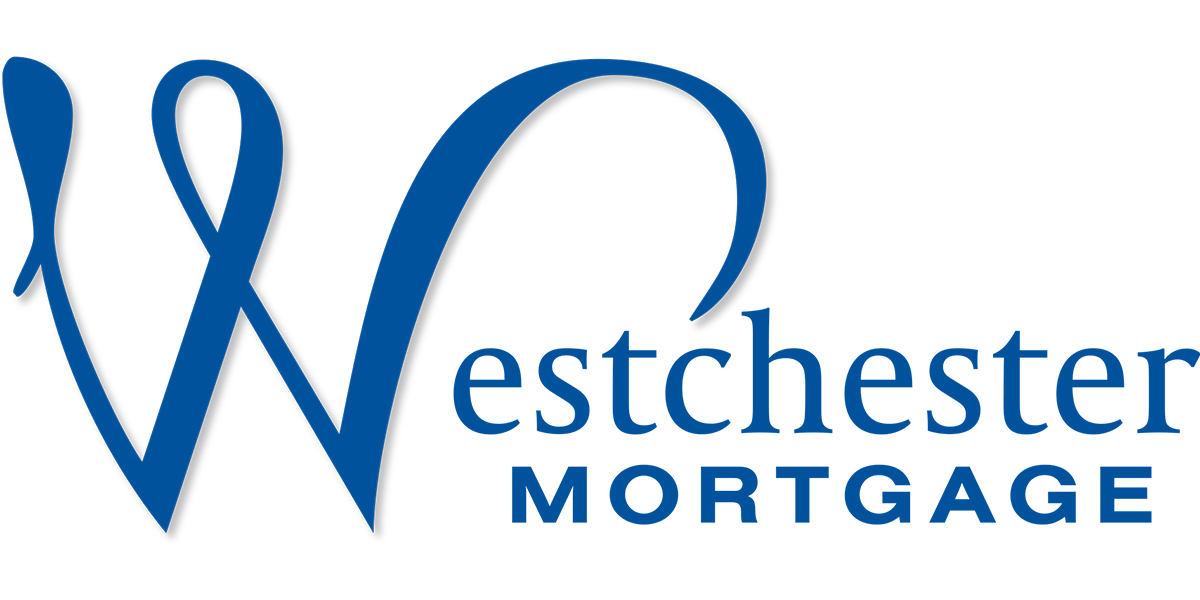
 Sweep & Vacuum Hair and Dander. This may seem obvious and it may be something you do often, but to truly control odor, you have to find all the hiding spots for pet hair. This includes under couch cushions, below and inside drapery, under blankets and beds.
Sweep & Vacuum Hair and Dander. This may seem obvious and it may be something you do often, but to truly control odor, you have to find all the hiding spots for pet hair. This includes under couch cushions, below and inside drapery, under blankets and beds.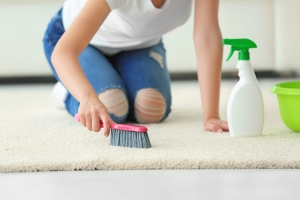 What’s the best way to clean your carpets? Everyone has an opinion: steam, shampoo, cold water, hot water, etc. But other variables exist as well: call in a professional, rent a machine, hands-and-knees scrub, and more. The fact is, any of these methods will leave your carpets cleaner, but what are the risks involved?
What’s the best way to clean your carpets? Everyone has an opinion: steam, shampoo, cold water, hot water, etc. But other variables exist as well: call in a professional, rent a machine, hands-and-knees scrub, and more. The fact is, any of these methods will leave your carpets cleaner, but what are the risks involved?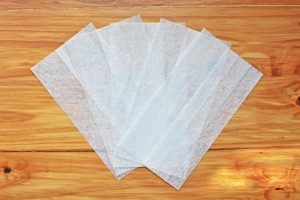 Freshen Up Your Gym Bag. A good workout can lead to unwanted odors that get trapped inside your gym bag, only to burst forth the next time you open it. Even the cleanest bag can get a little funky, so drop a few dryer sheets in it to neutralize odors. Pro tip: stick them in your sneakers to minimize foot odor.
Freshen Up Your Gym Bag. A good workout can lead to unwanted odors that get trapped inside your gym bag, only to burst forth the next time you open it. Even the cleanest bag can get a little funky, so drop a few dryer sheets in it to neutralize odors. Pro tip: stick them in your sneakers to minimize foot odor.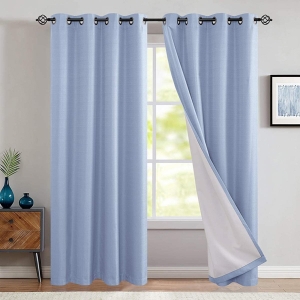 It’s been an odd February with temperatures close to zero some days, 65 this week, and another snowstorm heading to us tomorrow. This made us think about curtains and their function. Why? Read on.
It’s been an odd February with temperatures close to zero some days, 65 this week, and another snowstorm heading to us tomorrow. This made us think about curtains and their function. Why? Read on. This has been one of the rainiest springs and summers in a long time. What does that mean for the water table? Is it rising? How can it affect your home?
This has been one of the rainiest springs and summers in a long time. What does that mean for the water table? Is it rising? How can it affect your home?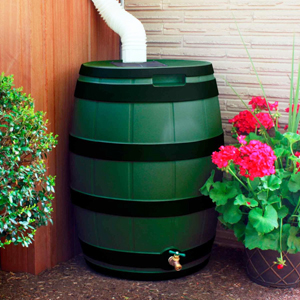 Rain barrels collect water from your roof that runs from the gutter, through the downspout, and into your rain barrel. The collected water can be used to water your lawn and garden. Other used include wash your car, filling a koi pond, or cleaning around the house.
Rain barrels collect water from your roof that runs from the gutter, through the downspout, and into your rain barrel. The collected water can be used to water your lawn and garden. Other used include wash your car, filling a koi pond, or cleaning around the house.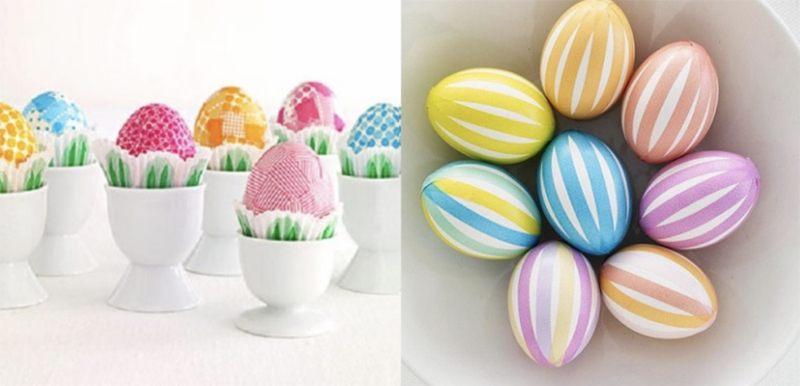
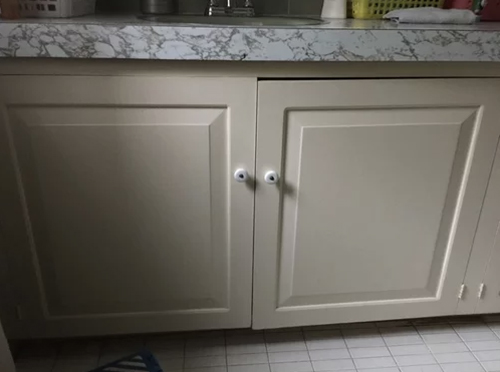 First, let’s look at that saggy door. The culprit is typically a loose screw that may just need to be tightened. But after a few days you may see the door sag again. That’s because the screw has damaged the wood slightly. A quick fix that might solve your problem is to buy a bottle of
First, let’s look at that saggy door. The culprit is typically a loose screw that may just need to be tightened. But after a few days you may see the door sag again. That’s because the screw has damaged the wood slightly. A quick fix that might solve your problem is to buy a bottle of